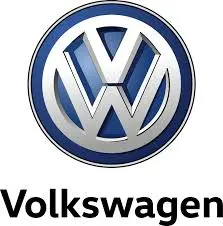The Volkswagen Dilemma: A Cautionary Tale for the Automotive Industry

In the heart of Germany’s industrial landscape, VW, the nation’s automotive titan, is at a crossroads. Recently, tens of thousands of Volkswagen employees walked off the job to protest proposed salary cuts that could affect over 120,000 workers. The cause? An intricate web of rising labor costs, material shortages, and the ever-looming climate change agenda that has turned fossil fuels into a villain in the eyes of many.
The Market’s Squeeze on Profits
Volkswagen is facing a dramatic shift, with profit margins plummeting from a previously optimistic forecast of 7% to just 5.6% for 2024. After the company reported negative cash flow in the first half of the year, the urgency for cost-cutting measures became paramount. Executives have boldly stated that they need to save an astounding €10 billion by 2026 and find an additional €4 billion in cuts.
As Volkswagen grapples with a strenuous economic landscape, it’s evident that a significant challenge lies in their electric vehicle (EV) production pipeline. Whereas their internal combustion engine vehicles had a clear demand, the appetite for EVs is lackluster, forcing the company to reconsider production rates and strategies. The stark reality is that the transition to EVs cannot simply be accelerated through policy mandates—market dynamics are an unforgiving beast.
The Global Impact of Subsidies
One of the elephants in the room is the competitive landscape shaped by international players, particularly China. Subsidies for EVs in China have driven prices significantly lower than their German counterparts, creating an uneven playing field. This scenario prompted the U.S. to impose a 100% tariff on Chinese EVs, effectively stifling demand and aiming to protect domestic industries. But the real question remains: can we force consumers to embrace EVs when a significant portion isn’t ready to convert?
Germany is betting big on an ambitious plan to cut carbon emissions by 65% by 2030, with a goal of 15 million EVs on the road by the end of the decade. However, the average cost of an EV has soared by 7.5% to €56,669 over the past year, making them less accessible to the average consumer. Furthermore, inadequate infrastructure presents a formidable barrier to achieving widespread adoption.
An Automotive Giant in Crisis
For the first time in its 87-year history, Volkswagen is closing manufacturing plants, signaling unprecedented turmoil in Germany’s automotive sector—a critical segment that contributes to nearly 17% of the nation’s GDP. This crisis is not isolated; it poses a significant threat to the broader European economy, which heavily depends on Germany’s industrial might.
Extreme Investor Network emphasizes the importance of keeping a keen eye on these developments. The automotive industry is often seen as a bellwether for economic health, and Volkswagen’s struggles may trigger a ripple effect across Europe. As the situation unfolds, the repercussions of misguided policies on the car manufacturing sector could resonate far beyond national borders.
Looking Ahead: The Future of Automotives in Europe
As the automotive landscape shifts under the weight of environmental concerns and economic realities, it is essential for stakeholders—governments, automakers, and consumers alike—to engage in open dialogues. It’s crucial to find a balance that meets environmental goals while also securing economic stability and job security.
At Extreme Investor Network, we remain committed to providing insights into these complex intersections of economies and industries. This latest chapter in Volkswagen’s story serves as a poignant reminder of how intertwined our global economic ecosystems truly are. Stay tuned for more updates as we continue to monitor this developing situation.

